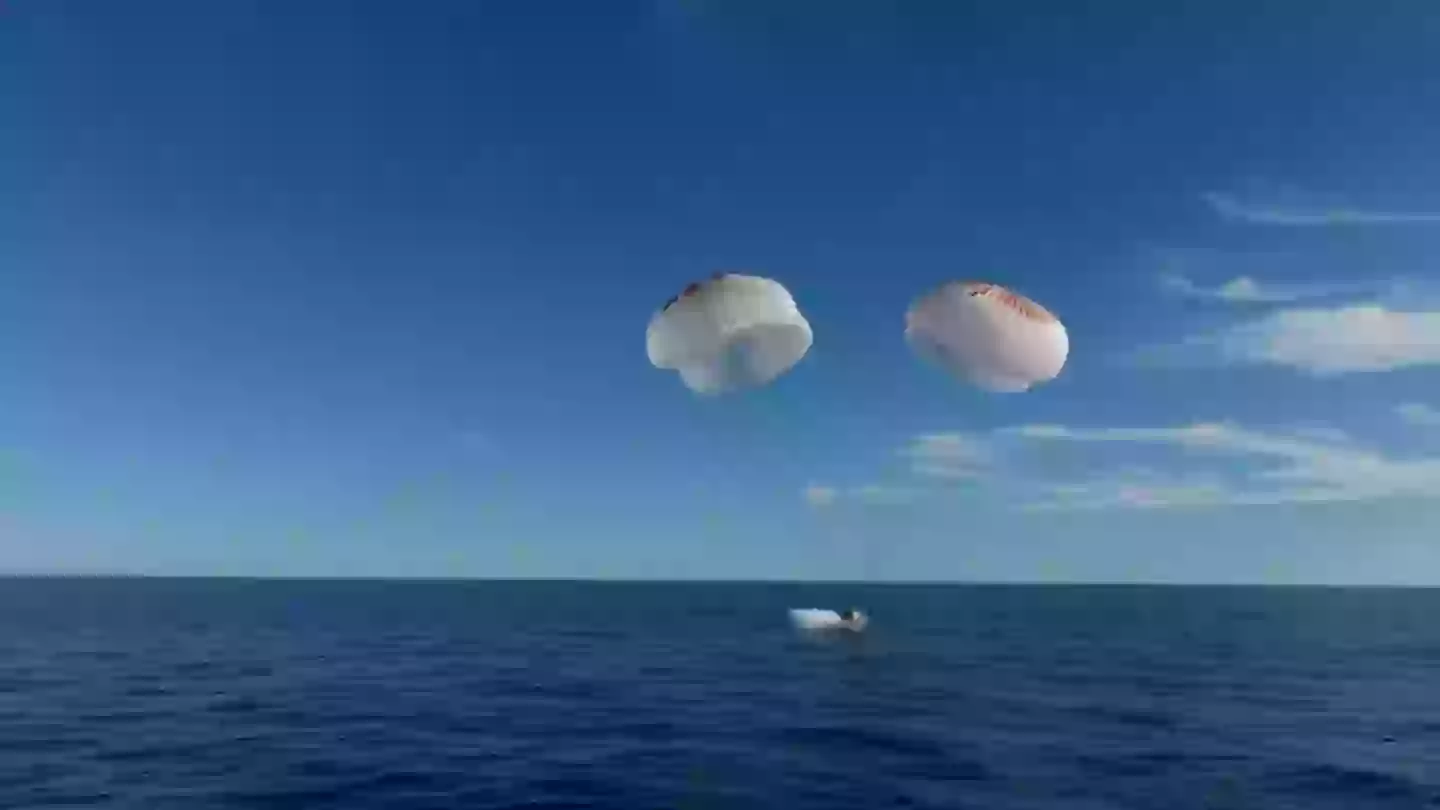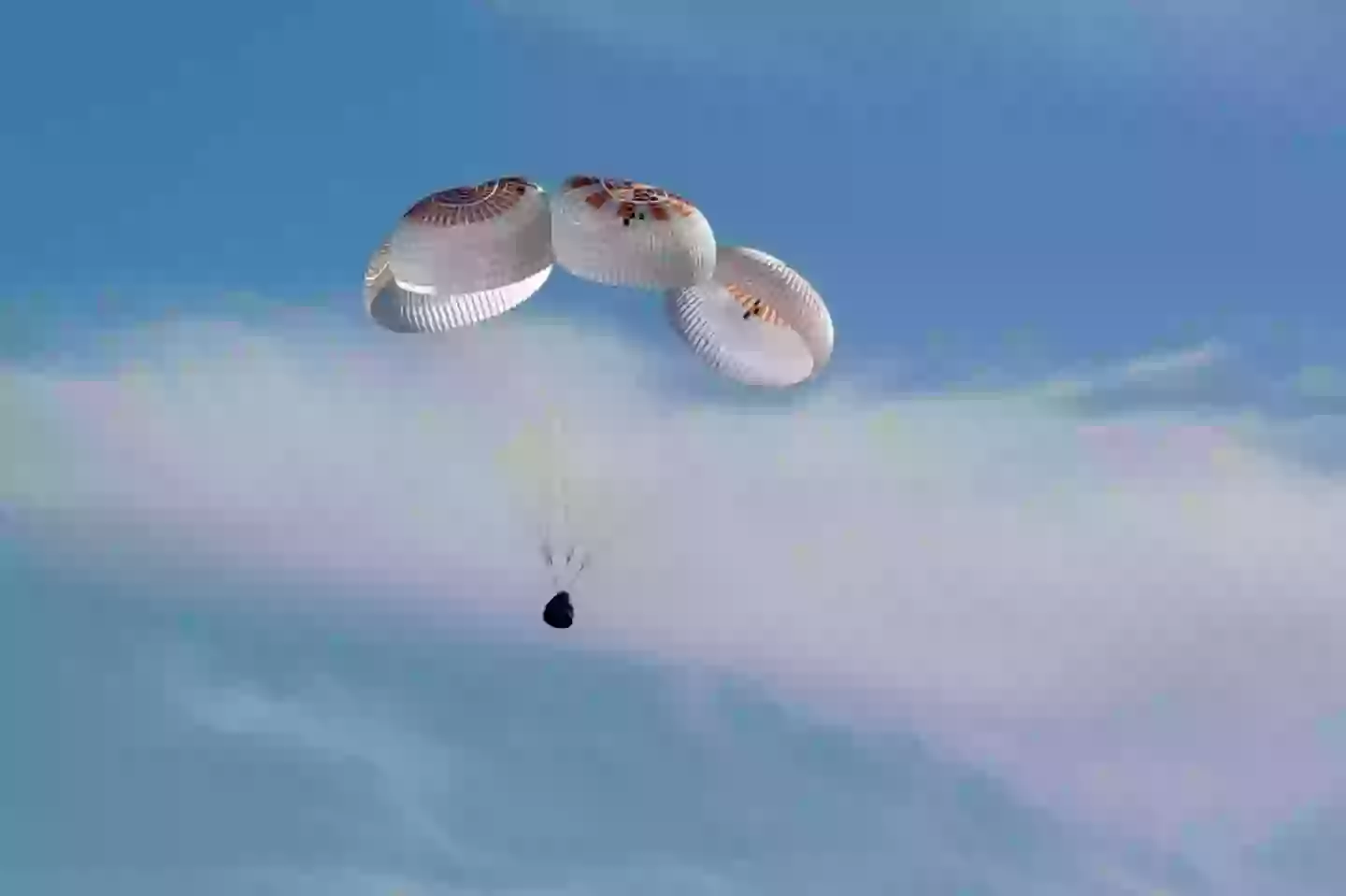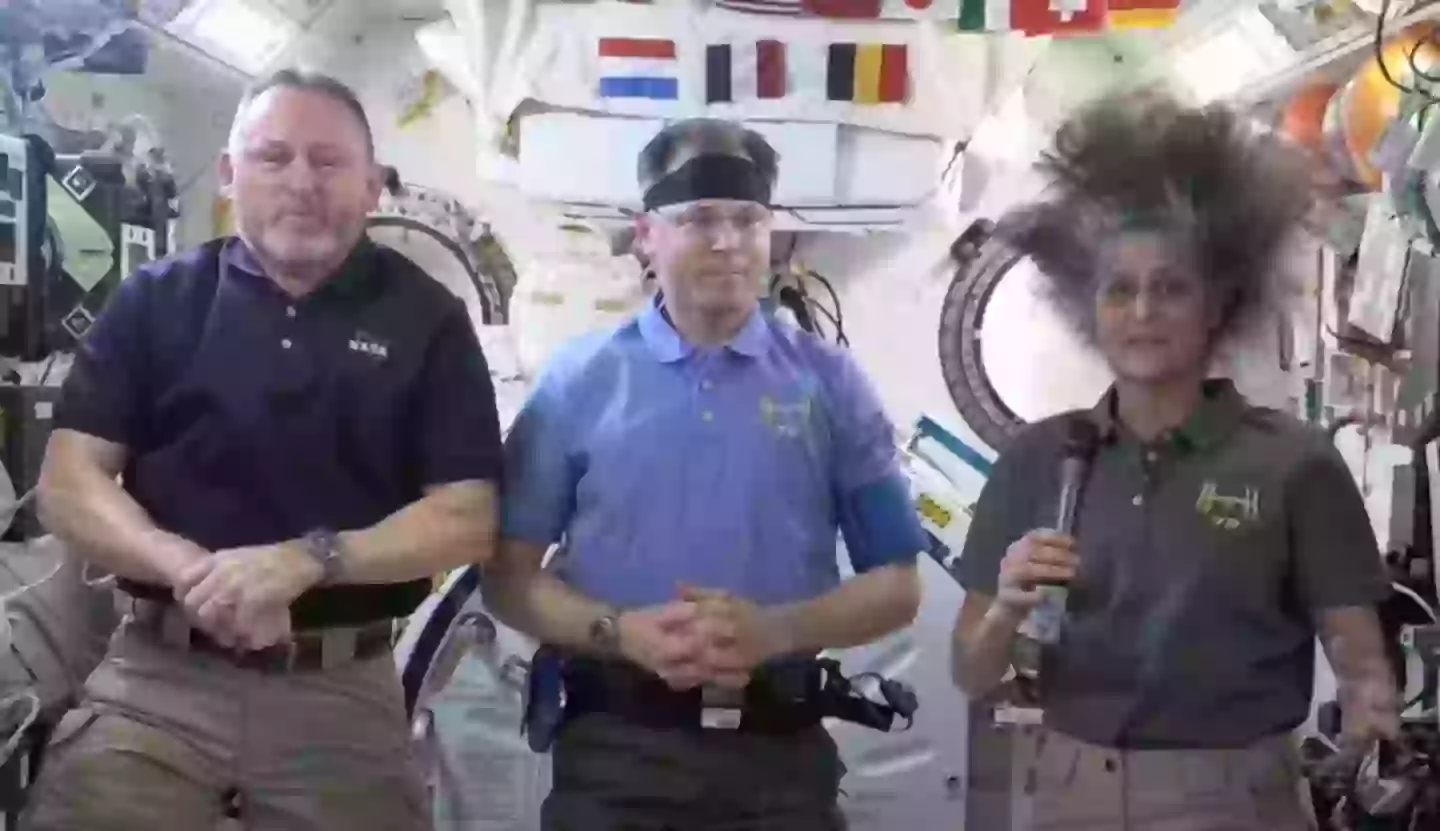
NASA astronauts Sunita 'Suni' Williams and Barry 'Butch' Wilmore have returned to Earth's surface.
Eyes across the world were glued to screens as the highly awaited return of the astronauts finally came, with re-entry, parachute deployment, and splashdown going smoothly after a 17-hour journey back to our planet.
The pair were originally sent up to the International Space Station (ISS) in June 2024 for an eight-day mission, but following some technical issues to their Boeing Starliner spacecraft, they were forced to stay there.
Advert
As the capsule was sent back was sent back to Earth unmanned, there was initially no set date for the astronauts' return.
After several delays, a date of 12 March was set for their return mission to launch, in a joint venture between NASA and SpaceX.
Thousands watched on as NASA streamed the Space-9 Crew's re-entry to Earth, and the Crew Dragon spacecraft's subsequent splash down took place off the eastern coast of the US.
The splashdown took place off the coast of Florida at 21:57 GMT.
Why have the astronauts been in space for so long?
Williams and Wilmore arrived at the ISS for an eight-day mission in June 2024 but their spacecraft ran into some issues.
Advert
While the pair have remained adamant that they weren't 'stranded', there is a reason behind their delayed return.
NASA's Associate Administrator Ken Bowersox explained in a teleconference last Friday: “The SpaceX folks helped us with a lot of options for how we would bring Butch and Suni home on Dragon in a contingency.”
He revealed there were 'always options' when it came to adding missions or bringing a capsule back earlier then planned.
Bowersox added: “But we ruled them out pretty quickly just based on how much money we've got in our budget, and the importance of keeping crews on the International Space Station,”
“They're an important part of maintaining the station.”
Advert

Donald Trump and Elon Musk's involvement
While Elon Musk may look like the hero here, providing a SpaceX capsule to bring the astronauts home, the businessman has, together with President Donald Trump, blamed the delay of Williams' and Wilmore's return on the Biden administration.
The Tesla CEO even claimed that he offered to bring them home earlier, but was allegedly shut down by the previous US leader.
While the astronauts denied any knowledge of this, the Crew-9 spacecraft arrived on Saturday (15 March) with four other astronauts, taking over duties on the ISS.
Advert
Trump previously claimed to reporters in the Oval Office: "Biden left them up there.
"We have two astronauts that are stuck in space. I have asked Elon (Musk), I said, ‘Do me a favour. Can you get them out?' He said, ‘Yes.'
"He is preparing to go up, I think in two weeks."
Trump then addressed the astronauts, saying: "We love you, and we're coming up to get you. And you shouldn't have been up there so long."

What health effects can the astronauts expect to face?
It is known that the astronauts haven't needed to use their muscles in space due to the lack of gravity, causing atrophy.
Advert
NASA states that weight-bearing bones lose an average of '1 percent to 1.5 percent of mineral density per month during spaceflight'.
But that's not the only health issue the pair could face.
The changes to the body continue, as medical assessments taken from returning astronaut Scott Kelly showed a decrease in speed and accuracy of his cognitive performance, a change in gut bacteria, weight loss and potential DNA damage from exposure to radiation.
Astrophysicist Alan Duffy also revealed to The Guardian that being in space for a long period of time can make someone feel like they've got a 'constant cold'.
This is because fluid builds up in the astronaut's head and doesn't drain properly, though apparently the impairment to smell is a blessing in disguise.
Rumour has it, the ISS is said to have a particular smell.
Topics: NASA, SpaceX, Elon Musk, Donald Trump, Health, Science